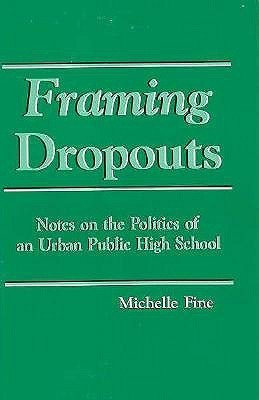"I think this is the most important work I have read in over a decade on the sociology and politics of school dropouts. Fine combines a narrative structure with a rigorous theoretical discourse that allows the reader to both hear the voices of those involved in the dropout situation as well as to have the opportunity to reflect critically on the ideological and material forces that structure the dropout issue as a social problem. I am convinced that it will be a major influence in the field and will establish a new theoretical standard for inquiry into the area of school dropouts." -- Henry A. Giroux, Professor and Renown Scholar in Residence, Department of Educational Leadership, Miami University
"As a critical ethnography, this manuscript is thoughtful, compassionate, and compelling. Fine is able to document the 'braiding' of race, class, gender in sophisticated ways and this is one of the text's greatest strengths. The link between those who 'drop out' and the restriction of critique is powerfully achieved. Fine has successfully re-presented the complexities of urban education. She should be applauded for her integration of black and feminist theorists. I believe this text is pioneering. It opens the literature on adolescents placed at risk to include contexts previously ignored. This should be required reading for all school personnel, future teachers, and those associated with educational contexts." -- Deborah P. Britzman, Department of Education, State University of New York, Binghamton
"What Fine does is show us in depth the reality of the situation we often wish would just go away. We are forced to confront what pain is engendered by our public institutions and consider how we might take up the challenge to do something about it." -- Roger I. Simon, Ontario Institute for Studies in Education

